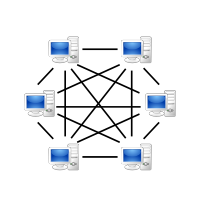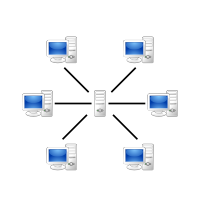from MLW
 I talk a lot about peer to peer politics and when I do I am referring to a very deep cultural framework, that is, the framework of an extended sub-culture which helped fire the net to life. The culture does not have a single name but it is one I consider the kernel of the net, it is the original source of the online culture as we know it, the origin of many of its traditions and standards (netiquette? obviously mostly forgotten). The sentiments of this culture explain many of the mysteries of the net. It is part cryptoanarchis, part geeks that matter, and part realization… the realization that distributed networks are needed in place of traditional centralized ones.
I talk a lot about peer to peer politics and when I do I am referring to a very deep cultural framework, that is, the framework of an extended sub-culture which helped fire the net to life. The culture does not have a single name but it is one I consider the kernel of the net, it is the original source of the online culture as we know it, the origin of many of its traditions and standards (netiquette? obviously mostly forgotten). The sentiments of this culture explain many of the mysteries of the net. It is part cryptoanarchis, part geeks that matter, and part realization… the realization that distributed networks are needed in place of traditional centralized ones.
Whenever people gather throughout history, you have had human networks, the internet only speeds that up and gives us a venue, virtual community, with which to experiment.
It is my history in this culture which is the source of my fascination with virtual cultures as well as with wherever the edge of the peer to peer fire has rearranged the landscape. This phenomenon of peer to peer networks has struck, stunned, and subtly reformed many public debates. These debates are allowed to extend beyond the experts, many of whom were charlatans in industries whose internal debate needed the reform. When peer to peer networks take on a subject, more than anything else they shine a light on the proceedings.
Hobby by hobby this phenomenon spread, starting with things of interest to early adopters, things like Monty Python, Star Trek, and News for Nerds. It has progressed through a list of hobbies for shut-ins and want to be shut-ins (no offense intended) and subsequently through to politics, politics as a hobby.
